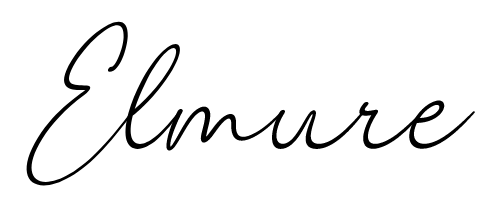Book Recommendations from Ben Shapiro

Ben Shapiro is known for his sharp wit, rapid-fire logic, and unapologetic defense of Western values. As a political commentator, lawyer, and best-selling author, he emphasizes the power of reading to sharpen critical thinking and articulate ideas clearly. His reading list spans economics, philosophy, history, religion, and even classic literature—reflecting the intellectual depth behind his arguments. If you're looking to build a solid foundation in political thought, moral reasoning, or economic principles, these books come highly recommended by Shapiro himself.
Books Ben Shapiro Recommends

Thomas Sowell’s *Basic Economics* is exactly what the title suggests: a no-nonsense guide to understanding economic principles without graphs, jargon, or complex equations. Sowell explains how supply and demand, price controls, taxation, and trade affect real-world decisions and public policy. What makes this book stand out is its clarity—anyone can grasp the fundamental forces that shape our world. It’s not only a guide to economics, but a toolkit for critical thinking. Shapiro frequently cites Sowell as one of his biggest intellectual influences, and this book shows why.

First published in 1946, *Economics in One Lesson* remains a cornerstone of libertarian economic thought. Hazlitt’s central thesis is simple but profound: always consider the long-term consequences of policies—not just their immediate effects. Through clear examples, he dismantles economic fallacies that persist in public debates, such as price fixing or government subsidies. This book is accessible, practical, and brutally honest. Shapiro recommends it as a must-read for anyone who wants to engage intelligently in economic and political conversations.

Why do people with opposing views seem to talk past each other? In *The Righteous Mind*, social psychologist Jonathan Haidt dives deep into the psychological roots of morality and political ideology. He explains how intuition often comes before reason—and how we’re more driven by emotion and tribal loyalty than we think. Haidt’s moral foundations theory sheds light on the values that guide both conservatives and liberals, helping readers better understand and empathize with different worldviews. Shapiro finds this book invaluable for navigating culture wars with clarity and empathy.

C.S. Lewis delivers a masterclass in reasoned faith with *Mere Christianity*, a powerful defense of Christian ethics and belief. Drawing from a series of BBC radio broadcasts during World War II, Lewis uses logic and analogy to build a case for universal moral law and the existence of God. It’s not just for believers—Lewis addresses skeptics with respect and intellectual rigor. Shapiro admires the clarity and structure of Lewis's arguments, often pointing to the book as a model of persuasive writing. Whether you’re religious or just curious about moral frameworks, this book is both challenging and illuminating.

Written in defense of the U.S. Constitution, *The Federalist Papers* are essential reading for anyone interested in the founding principles of American government. These essays explore the balance of power, federalism, checks and balances, and the nature of liberty. Though written in the 18th century, their ideas are remarkably relevant today. Shapiro often references these documents to underscore originalist interpretations of the Constitution. A must-read for history buffs, political junkies, and anyone passionate about preserving democratic institutions.

A.J. Langguth’s *Patriots* is a gripping narrative of the American Revolution told through the eyes of its key players. This isn’t dry history—it’s a page-turner filled with drama, passion, and the high stakes of rebellion. Langguth profiles figures like Samuel Adams, Patrick Henry, and Thomas Jefferson with vivid detail and insight. Shapiro appreciates how the book captures the revolutionary spirit and ideological roots of American independence. For anyone wanting to understand how America was forged through courage and conviction, *Patriots* is essential reading.

At first glance, *The Once and Future King* seems like just a retelling of Arthurian legend—but it’s much more than that. T.H. White infuses the myth of King Arthur with political philosophy, ethical dilemmas, and deeply human themes. Through Merlin, Arthur, and Lancelot, the book explores justice, leadership, and the tragedy of idealism. Shapiro praises it for its depth and intellectual richness, often referencing it when discussing leadership and morality. It's a beautifully written epic that blends fantasy and philosophy in unforgettable ways.

*The Secret of Santa Vittoria* tells the story of a small Italian town that defies the Nazis during World War II in an act of collective courage. It's a tale of resistance, leadership, and quiet heroism in the face of overwhelming danger. Crichton crafts a deeply human narrative that balances humor and tragedy. Shapiro admires the book’s moral clarity and the way it highlights the power of ordinary people standing up to tyranny. It’s a powerful reminder that dignity and freedom are worth defending—even in the darkest times.

In *Superabundance*, Tupy and Pooley challenge the doom-and-gloom narrative that resources are running out. Instead, they present compelling evidence that human ingenuity has made life better, longer, and more prosperous—especially in free-market societies. Drawing on economic data and historical trends, the book argues that population growth leads to innovation and abundance. Shapiro recommends it as an antidote to scarcity-driven thinking and anti-capitalist rhetoric. It's a refreshing, data-rich perspective on human potential and the future of global development.

Part sports memoir, part cultural exposé, *Ball Four* is Jim Bouton’s brutally honest look at life inside Major League Baseball. Written with wit and insight, the book shatters the myth of the all-American athlete, exposing the pressures, egos, and behind-the-scenes antics of the game. Shapiro appreciates it not only for its candor but for its literary value and rebellious spirit. It’s funny, raw, and remarkably human. Even if you’re not a sports fan, *Ball Four* offers a unique lens on American culture and personal integrity.
